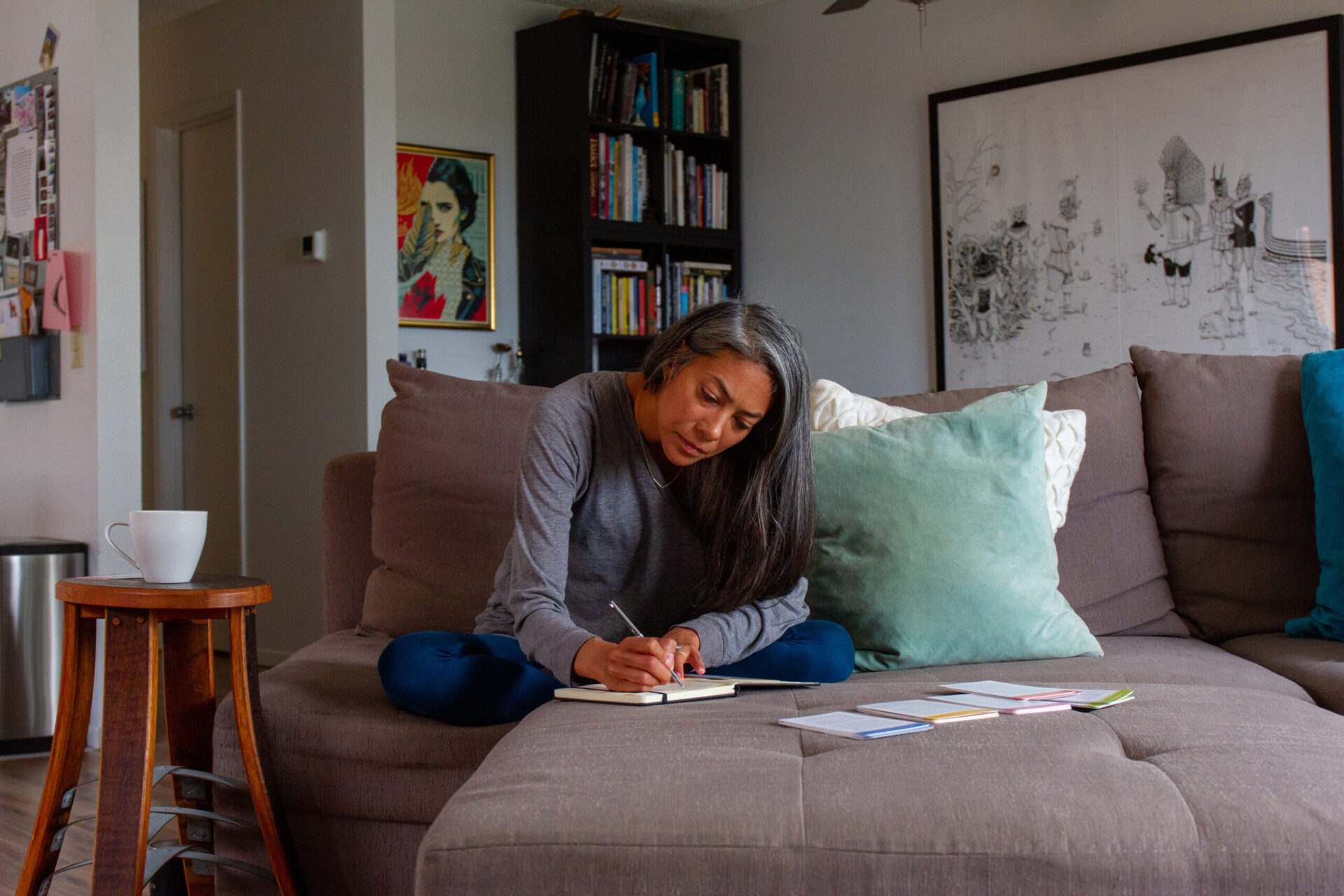Re-New, Re-You : Inviting Yourself Back into Your Circle of Compassion | By Skip Hudson
We are taught to give and serve others. Service reminds us that we do indeed have something to offer, which can lead us to grateful awareness. Service and gratitude bring us back from negative states of mind, and they renew self-compassion and the connection with our light. Service to others is essential!
But, service can be unbalanced if the focus on others comes at our own personal expense. We have an amazing circle of compassion that includes everyone we love. But, sometimes we leave an important person out of that circle — ourselves. Self-compassion practices remind us that we can (and must) treat ourselves with the same level of compassion that we offer to others.
The challenge is that our culture considers self-service to be selfish and wrong. This couldn’t be further from the truth. We can’t be our best selves if we are self-critical, burned-out, tired or just feeling inadequate and imperfect. We must be in a good place, so that we can be our best for others.
We search for friends and partners hoping that they will accept us just as we are, including our imperfections. This seems reasonable, because we don’t know anyone who is perfect. On the other hand, we unreasonably expect perfection from ourselves. The voice of our inner critic gets loud in these moments of imperfection, which leads to a sense that we just aren’t enough, and we might even be bad people. Self-compassion practices restore our ability to be emotionally resilient in the face of mistakes, criticism or disappointments.
Let’s explore some simple self-compassion practices that help us renew our most amazing selves. There are three aspects of self-compassion: mindfulness, common humanity and self-kindness.
Mindful practices keep us in the present moment, and they reduce the time we spend regretting something from the past, which can cause depression, or making up negative stories about the future, which can lead to anxiety. Simple mindful practices help us get out of our heads and back into our bodies. They can be done quickly in public settings during the heat of the moment when we need calmness the most.
Mindful techniques typically ask us to focus on a point outside of the mind. The most common technique is to focus on the breath in its natural rhythm. This is especially helpful when a sudden shocking experience occurs and our threat-defense mechanism kicks in (fight, flight or freeze). We stop breathing in those moments, but we don’t notice it. Coming back to the breath restores our balance and renews our ability to act intentionally instead of an automatic reactionary place. Other mindful focus points can be noticing places where your body is contacting something else. This could be the back of your legs on a chair or the soles of your feet on the floor. Pause for a moment now and try each of these practices to see if they are helpful to you. You know best.
The second aspect of self-compassion is renewing a sense of common humanity. We realize that self-compassion is not self-pity (poor me). It is an open awareness that all humans experience suffering in some way or another (poor us). For example, we all have wandering minds, which creates the need for mindfulness. We all also have a negativity bias that filters our interpretation of life events. We can be fault-finding machines, especially with ourselves. Recognizing common humanity helps us remember that we are not broken or alone in our challenges and responses.
The third aspect of self-compassion is self-kindness. The first step of self-kindness is to ignore the programming that we shouldn’t be kind to ourselves or that we aren’t worthy of kindness. Being kind to ourselves is a pre-requisite of supporting others. We can reduce accumulated stress during the day by taking one minute every hour for a mindful and purposeful pause. We can lower the expectation of perfection by saying, “I may not be perfect, but parts of me are awesome.” We can pamper ourselves with relaxing activities. We can love ourselves by closing our eyes, putting a hand on our heart and being with ourselves in a supportive way. We can experience the wisdom of Rumi, who said, “Close your eyes, fall in love and stay there.”
Mindfulness asks, “What am I experiencing right now?” Self-compassion asks, “What do I need right now in response to the experience?” Skillful emotional resilience is responding to those questions in a supportive way that moves past our inner critic’s accusations and lies. This is a path to self-renewal if we choose it and are willing to try it. Many have done it, and we can do it as well.
Photo by Daniel Mingook Kim.
Originally published in Summer + Fall 2022 issue.
 Skip is a teacher and life skills coach focused on emotional resilience through mindful and self-compassion practices. He offers online training events and courses to individuals, private groups and companies. Participants rediscover a lost part of themselves by remembering they are worthy of self-kindness and love. His mission is Guiding People and Organizations to “Being at Ease.” 970-314-4888, skiphudson.com
Skip is a teacher and life skills coach focused on emotional resilience through mindful and self-compassion practices. He offers online training events and courses to individuals, private groups and companies. Participants rediscover a lost part of themselves by remembering they are worthy of self-kindness and love. His mission is Guiding People and Organizations to “Being at Ease.” 970-314-4888, skiphudson.comNot every nutrition shake is created equal and LyfeFuel’s is top tier. Made with 50+ whole food nutrients [...]

Subscribe to Our Tribe
Stay up to date with Y+L News, Events and special announcements.










